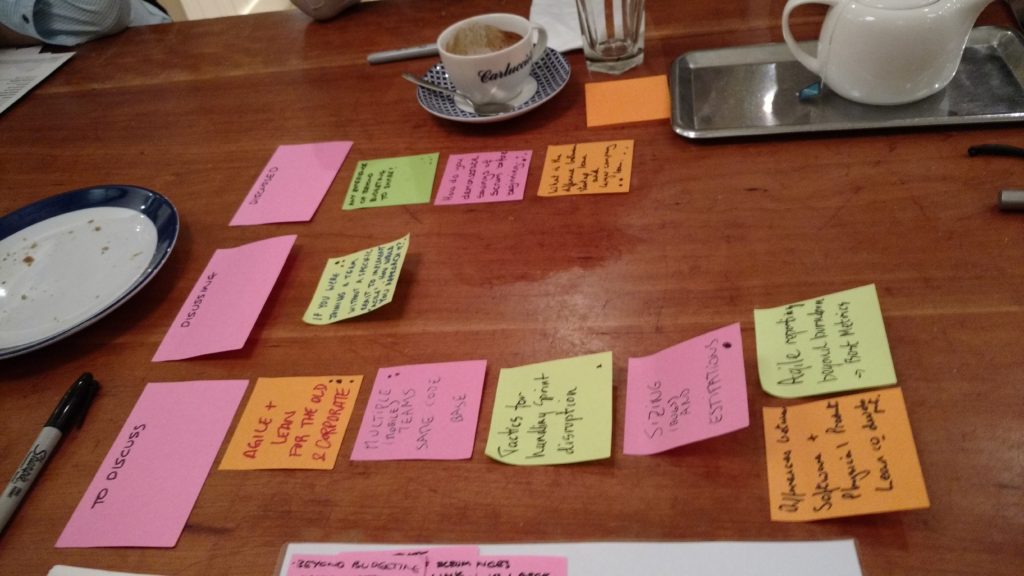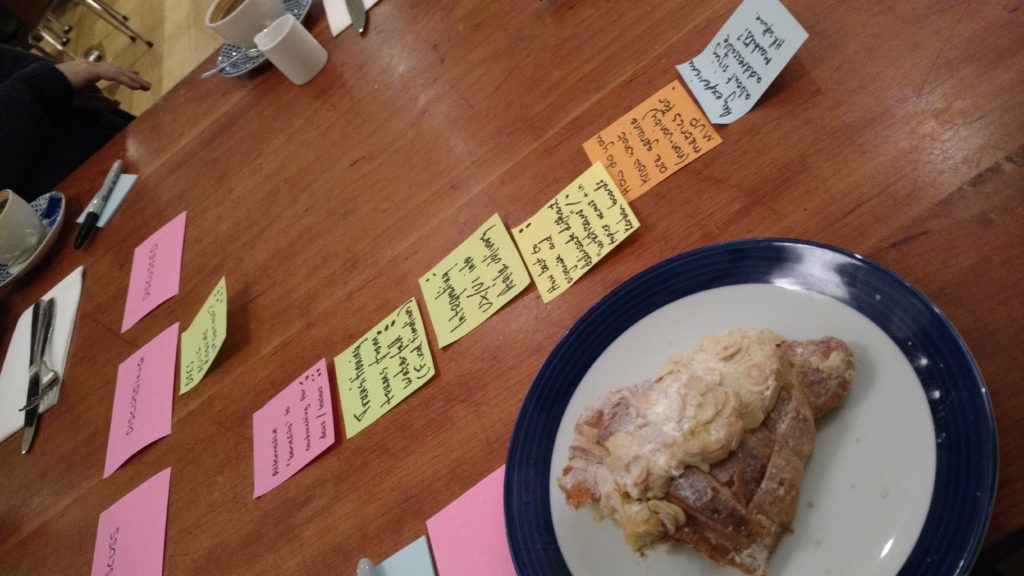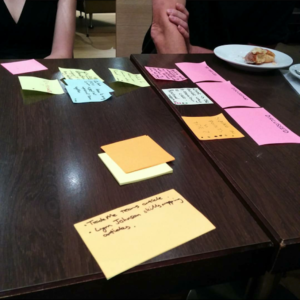We had some great discussions at the last West London Lean Coffee session which was held in Carluccio’s in Westfield on 2nd March. Here’s a brief write-up of what we talked about.
What We Discussed
Finding the Right CTO For a Tech Startup
We talked about how to go about finding a CTO. If, as a founder, you have a great idea but no clue about how to get the technology enablers completed in order to get to market then what should you do?
We discussed using specific CTO and founders meetups and websites to help with the search. It’s important to spend a lot of time choosing the right CTO (so many startups fail due to differences of opinion between the founders and early employees). Having a strict spec can be un-helpful and it’s as much about whether one can work with someone, than it is about their pure technical skillset.
There’s also the opportunity to consider part time CTO’s to help guide you. We also talked about whether having one right from the start is even required and that time would be better spent iterating over an idea, testing it through marketing or consumer research, before even thinking about how to partner with someone to built it.
How To Choose The Best MVP
What does a good MVP look like? How do you go about defining it?
We talked about whether it’s actually better to look at Minimum Pitchable Product first, vital for securing funding. We also discussed trialling ideas on customers, segmentation and why it’s important to consider that the customer base is not a base of you.
Revenue can be your best proof of an idea or a minimal pitchable product. You need to prove that you can deliver value.
In that respect I’d certainly recommend reading The 4 Hour Work Week by Tim Ferris which contains a lot of tips.
What Are The Key Behaviours That An Agile Coach Can Demonstrate?
What should you look for when choosing an Agile Coach? What behaviours make great coaches? We came up with this list:
- Calm
- Knowledgable
- Lack of arrogance
- Contextually aware
- They want to make themselves out of a job or contract
- Good agile knowledge but not prescriptive
- Behaviours are the most important thing
Alignment Of Lean/ Agile To Customer Value
How can we ensure we are aligned to the needs and value gained from customers? We talked about gathering value as early as possible. But in order to do that one needs to understand what value means and this has to come from stakeholders. Identification and relationship building with those stakeholders becomes is so important.
How Much Transparency Should a Team Provide During a Sprint?
How much should a team feedback progress during a sprint vs just getting their heads down and getting on with it?
Our discussion started by talking about the pros (stakeholder management primarily) and the cons (perceived lack of trust, reporting overhead) of providing visibility. We agreed that the key point was not to disrupt the team during the sprint and to that end, automated reporting solutions (within popular tools like JIRA, Trello, etc) were key. But on their own reports could be misunderstood and lack context so if teams do want to report during sprint then there is a human overhead to do that, perhaps falling to the Delivery Manager or Scrum Master.
What We Didn’t Get Time To Discuss
- Product Owner role in a larger product company
- How close to an actual customer do you take user stories?
- Sharing failure stories – good or bad
- Process of website up and pitfalls (yep – I don’t understand what this really means either 🙂
- Have you ever worked with someone who stood out in a positive way and why was that?
The next West London Lean Coffee will be on March 30th in Carluccio’s in Westfield at 8:30am. Hope to see you there!








